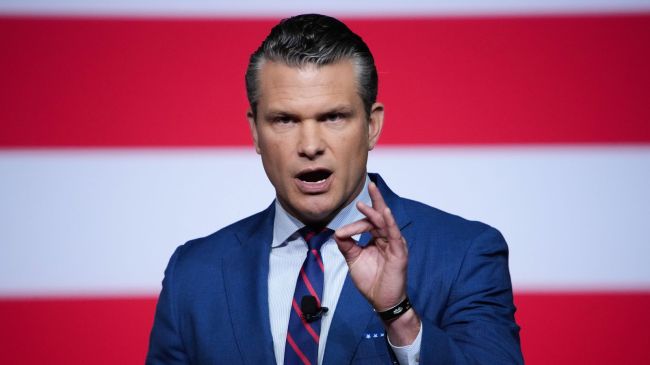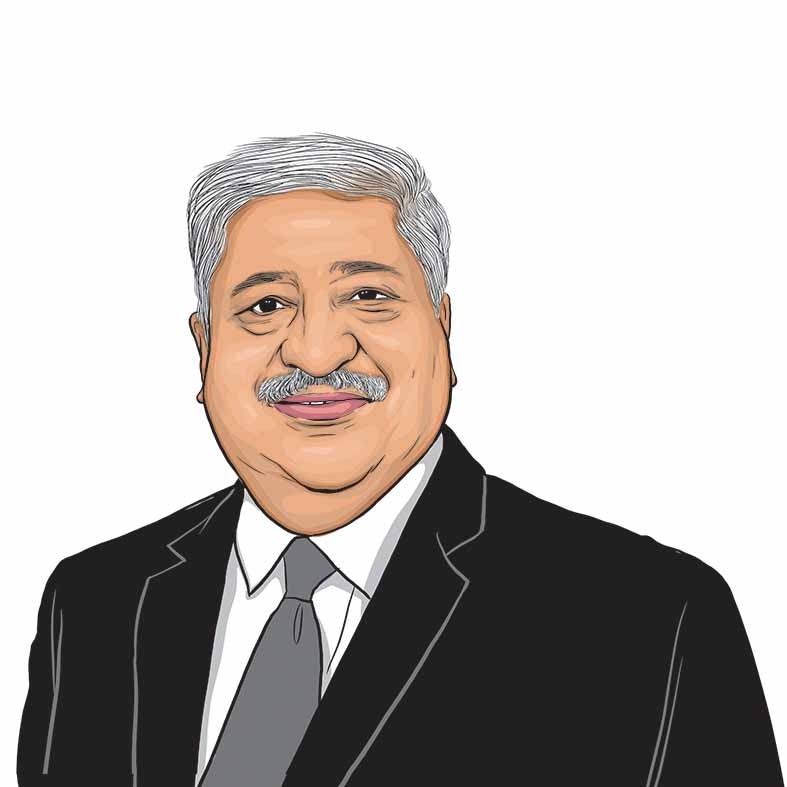Opinion Hegseth’s theatrics show how ill-equipped America is to lead the world
If Trump and Hegseth wish to transform the Department of Defence into a "Department of War," they should first understand what wars are really about
 Hegseth’s speech, filled with talk about “male standards," "firing fat soldiers,” and “ending woke culture,” revealed more about his insecurities than his understanding of the military profession.
Hegseth’s speech, filled with talk about “male standards," "firing fat soldiers,” and “ending woke culture,” revealed more about his insecurities than his understanding of the military profession. The once-sacrosanct balance between America’s military establishment and its civilian political leadership seems to be breaking down under the weight of populism, insecurity, and narcissism.
When the Secretary of Defence, or as he now calls himself, the “Secretary of War,” is more focused on television theatrics than strategy, it sends a disturbing signal to the officer corps, adversaries, and allies alike. That is what former Marine combat aviator Amy McGrath sharply highlighted when she challenged Pete Hegseth and Donald Trump‘s bizarre spectacle at Quantico. Her words resonate deeply, not because they were partisan, but because they were rooted in professional integrity, a virtue notably absent from the current group of political appointees, who seem more interested in acting out their “warrior fantasies” on national television than in leading the military with professionalism.
A blustering Secretary of War berated generals and admirals in front of television cameras, evoking the image of a court-martial combined with a talk show, except the accused were the very custodians of American security.
The shift of Pete Hegseth from cable news commentator to the Pentagon’s top civilian office illustrates what happens when populism displaces professionalism. The American military, despite its internal politics and bureaucratic complexities, has long taken pride in the clarity of its warrior ethos and the competence of its command structure. That understanding between political authority and military efficiency works only when each side respects its boundaries: The politician provides guidance, and the soldier achieves results within lawful limits. But at Quantico, those boundaries were erased.
Hegseth’s speech, filled with talk about “male standards,” “firing fat soldiers,” and “ending woke culture,” revealed more about his insecurities than his understanding of the military profession. For someone whose battlefield experience mainly involved serving as a National Guard officer and discussing it on television, his attempt to impose his idea of “discipline” on the professionals who actually execute war plans was almost comical.
The Secretary’s obsession with enforcing “male standards” reveals a profound misunderstanding of modern warfare. Today’s conflicts are no longer about brute strength or physical size. Cyber warfare, drone operations, intelligence analysis, and precision strikes depend on intellect, discipline, and training, not testosterone. Reducing combat effectiveness to gender or waistline is not only outdated but also dangerous. It sends a message to America’s adversaries that the leadership is dysfunctional, confirming what Beijing and Moscow already believe: That America’s military unity is breaking down amid internal cultural conflicts.
A central doctrine in any functioning democracy is the principle of civilian control over the military. However, this assumes that civilian leaders understand the institutions they oversee. Effective political oversight requires strategic vision, not sensationalism. Hegseth’s grandstanding and Trump’s incoherent rambling before senior officers served neither goal. Instead, they humiliated a disciplined fraternity that thrives on respect, mutual trust, and professionalism.
Leadership competence in this environment must be essential. It should serve as the foundation of national resilience. The world is witnessing a significant reordering of global power dynamics. The Russia-China alliance is not just a tactical partnership; it signifies a deliberate effort to reshape the rules of international interaction, weaken Western dominance in technology, and offer an alternative to Western military orthodoxy. For the United States to respond effectively, it needs a professional, empowered, and politically insulated military leadership that is free to think, plan, and act in accordance with strategic realities, not political illusions.
Hegseth’s pompous display at Quantico has the opposite effect. It signals division when unity is most needed. It indicates to every strategic partner, from London to Tokyo, that defence policy is hostage to populist moods. It also provides adversaries with valuable propaganda material: images of generals being publicly scolded by politicians who lack the gravitas and respect to handle the tools of war responsibly.
The Trump-Hegseth duo has turned warfare into an extension of political branding. “Winning” no longer signifies strategic advantage; it signifies applause. “Strength” no longer signifies capability; it signifies conformity. The greatest danger is not Hegseth’s ignorance of military standards but his ability to enforce that ignorance through executive authority. When mediocrity is empowered, excellence quietly retreats — the same quiet dismay seen among those generals at Quantico.
The silence of the generals in the Quantico audience was not due to cowardice; it was a matter of discipline. They endured humiliation rather than politicising their uniforms. But silence has its limits. When military ethics are consistently mocked and operational coherence is eroded by political posturing, the institution faces a crisis of legitimacy. Soldiers cannot fight for a hierarchy they do not respect. Nor can the world respect a superpower whose soldiers are forced to sit through lectures on body weight and gender while rival nations deploy hypersonic weapons and quantum warfare technologies.
If Trump and Hegseth wish to transform the Department of Defence into a “Department of War,” they should first understand what wars are really about. Wars are not television segments. They are the result of national psychology, institutional strength, and strategic purpose. The dangerous irony is that while Hegseth preaches about eliminating weakness, he and his mentor embody it. Their inability to separate service from submissiveness, discipline from obedience, and leadership from domination is precisely what allows geopolitical adversaries to exploit America’s fractures.
For allies like India, Japan, and Israel, nations watching this unfolding spectacle with a mix of disbelief and concern, the implications are profound. A distracted, demoralised, and politicised Pentagon weakens not only US command capability but also the credibility of deterrence itself. In a world defined by coercive diplomacy, energy warfare, and grey-zone conflicts, credibility is the ultimate weapon, and it is being squandered at an alarming pace.
In a time when the world is polarised between authoritarian assertiveness and democratic uncertainty, a nation’s strength depends not on how loudly its leaders speak, but on how wisely they lead. Wisdom in military affairs begins with humility, a trait that people like Pete Hegseth have yet to master.
The writer is a lieutenant colonel, former Armoured Corps officer, defence analyst and strategic thinker





